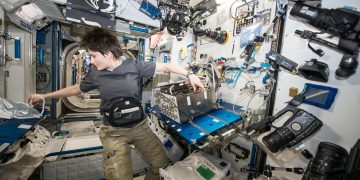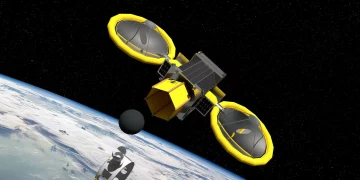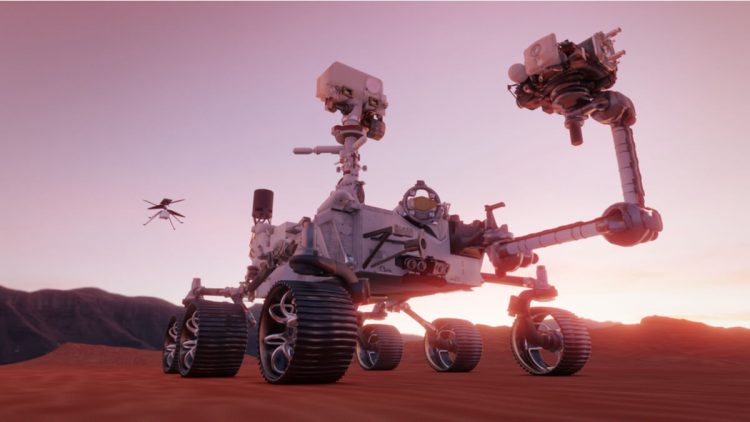Introduction: Setting the Stage for Mars and Beyond
Space exploration has captivated humanity for centuries, and Mars stands as one of our most alluring frontiers. The Red Planet has long been a focus of scientific research, speculation, and ambition. Over the past few decades, the interest in Mars exploration has skyrocketed, driven by technological advancements, international collaborations, and private sector ambitions. Sending humans to Mars is no longer a matter of “if” but “when.” Mars has drawn particular attention due to its potential as a new home for humanity. With a climate and terrain that shares similarities with Earth, including the presence of water in the past, Mars has captivated the imaginations of scientists, space agencies, and private companies. Beyond its potential for colonization, Mars offers incredible scientific value—unlocking secrets about the planet’s history, its potential to support life, and its role in understanding broader planetary science. The goal of exploring Mars, and eventually colonizing it, also reflects a broader human impulse to extend our reach beyond Earth, whether for survival, scientific curiosity, or technological progress. As we look to the future, the next few decades promise to reveal the challenges and triumphs of interplanetary exploration.
Mars Exploration: Rovers, Landers, and Human Missions
Mars exploration has been a remarkable journey, beginning with robotic missions and slowly inching toward the dream of human exploration. Over the years, rovers like Curiosity, Spirit, Opportunity, and more recently, Perseverance, have provided invaluable insights into Mars’ geology, climate, and potential to support life. Perseverance, which landed on Mars in 2021, continues to send back high-resolution images and data, including evidence that ancient Mars may have supported microbial life in its distant past. It is also preparing for the first-ever collection of Martian soil samples, which will be returned to Earth by future missions. NASA’s InSight lander, which touched down in 2018, has focused on understanding the Martian interior, providing data on its seismic activity and magnetic field, giving clues to its history and the broader processes that have shaped the Red Planet. Meanwhile, Tianwen-1, a mission led by China’s space agency, landed the Zhurong rover on Mars in 2021, becoming the first mission to orbit, land, and deploy a rover in its inaugural attempt. While these robotic missions have significantly advanced our understanding of Mars, the ultimate goal is human exploration. NASA’s Artemis Program, designed to establish a sustainable human presence on the Moon, is considered a stepping stone for Mars missions. The technologies and strategies tested on the Moon will pave the way for human missions to Mars, expected to occur in the 2030s. Meanwhile, SpaceX’s Starship project holds enormous promise for interplanetary travel, with Musk’s ambitious vision to send humans to Mars and eventually establish a self-sustaining colony. These missions are not just about exploration but also about survival. With technologies like advanced habitats, life-support systems, and autonomous operations in play, human exploration of Mars is increasingly feasible, albeit fraught with significant challenges.

Technological Hurdles: Getting to Mars
Sending humans to Mars is far from simple. The journey itself poses immense challenges, from the launch to the landing and the subsequent survival on the Martian surface. One of the first obstacles is the launch phase, where rockets must break free of Earth’s gravity, a task that requires vast amounts of energy. Once in space, spacecraft must travel approximately 300 million miles to reach Mars, which can take anywhere from six to nine months. Upon arrival, landing on Mars is equally challenging. The planet’s thin atmosphere makes aerobraking difficult, meaning that spacecraft cannot rely solely on parachutes to slow their descent. NASA’s Skycrane system, used during the Perseverance landing, is one example of an innovative solution to this problem. However, landing human crews will require even more advanced technologies and precision to ensure safe touchdown. Another hurdle lies in surviving on Mars once there. The Martian atmosphere is composed primarily of carbon dioxide, offering no breathable air. Temperatures average around minus 80°F (minus 60°C), with drastic fluctuations between day and night. Radiation exposure from the Sun and cosmic rays is also a serious concern, as Mars lacks a protective magnetic field and thick atmosphere like Earth. These challenges are where advanced technology becomes vital. AI, robotics, and autonomous systems play a huge role in Mars missions, from autonomous landing systems to AI-driven analyses of Mars’ terrain and potential hazards. Propulsion technologies are also evolving, with innovations such as nuclear thermal propulsion and reusable rockets dramatically reducing costs and improving mission timelines.
Building on Mars: Sustainability in the Harsh Environment
Building a self-sustaining colony on Mars is one of the biggest objectives of future human missions. This requires creating habitats that can provide air, water, and food while also protecting inhabitants from radiation and extreme temperatures. NASA’s Mars Habitat concepts focus on inflatable structures and regolith-based building materials, which could be used to construct shelters using resources found on Mars itself. In-situ resource utilization (ISRU) is the key to sustainability. ISRU involves using local Martian resources, such as extracting water from the planet’s polar ice caps or converting the CO2-rich atmosphere into breathable oxygen. Additionally, ISRU technologies could help produce fuel for rockets and other machinery, reducing the need to transport supplies from Earth. To make long-term habitation feasible, systems for food production on Mars are also being explored. NASA’s Advanced Plant Habitat has already tested plant growth in Martian-like conditions aboard the ISS, while growing crops in hydroponic systems on Mars could provide astronauts with fresh produce. Furthermore, bioregenerative life-support systems, which combine plants and microbes to recycle waste and regenerate oxygen, could help sustain a Martian colony.
Exploring the Moons of Mars: Phobos and Deimos
Mars has two moons, Phobos and Deimos, which are of increasing scientific interest. Although small, irregularly shaped, and thought to be captured asteroids, these moons could serve as valuable waypoints for future interplanetary exploration. Because of their proximity to Mars, Phobos and Deimos could be ideal locations for space stations or fuel depots, offering strategic advantages for long-term exploration. Phobos, for example, is slowly spiraling inward towards Mars, and in a few million years, it will either crash into the planet or break up into a ring system. Its low gravity and relatively stable orbit make it an attractive candidate for building infrastructure. Establishing a base on either moon would allow astronauts to launch expeditions to the Martian surface without the need for a costly return to orbit. However, challenges persist, such as their irregular shape and low gravity. Establishing a stable base would require overcoming significant engineering obstacles, and space agencies will need to develop technologies to ensure that such bases can function efficiently and safely.
The Role of Space Agencies and Private Companies in Mars Exploration
Mars exploration is no longer solely a government initiative. While NASA continues to lead in terms of funding and organizational expertise, private companies like SpaceX, Blue Origin, and others are accelerating space exploration in unprecedented ways. SpaceX’s Starship project, for example, promises to revolutionize Mars travel by offering fully reusable spacecraft capable of carrying large crews and cargo. SpaceX’s ability to reduce costs and increase the frequency of missions could dramatically speed up the timeline for human exploration. The collaboration between government space agencies and private companies will be critical for achieving Mars missions. Public-private partnerships could accelerate the development of critical infrastructure, from launch vehicles to habitats, and facilitate the sharing of resources and knowledge. By combining government resources and private innovation, humanity can overcome the technological and financial challenges of space exploration.
Exploring Beyond Mars: The Next Targets for Human Exploration
While Mars remains the primary target for human space exploration, there are other exciting possibilities beyond it. Europa, one of Jupiter’s moons, and Titan, Saturn’s largest moon, are both prime candidates for exploration due to their potential for harboring life beneath their icy crusts. Europa Clipper, a NASA mission set to launch in the 2020s, will study Europa’s subsurface ocean, which could potentially support microbial life. The outer planets and their moons also present the next great challenges for robotic and, potentially, human exploration. Missions like the James Webb Space Telescope (JWST) will continue to expand our understanding of distant worlds, and missions like NASA’s Dragonfly on Titan could be stepping stones for exploring larger outer planetary systems.
The Future of Space Exploration: Colonizing Other Worlds
Interplanetary colonization represents the ultimate goal of space exploration. While it is still far in the future, human colonies on the Moon, Mars, or even beyond may one day serve as havens for humanity. However, this brings with it ethical concerns related to resource exploitation, governance, and the preservation of alien ecosystems. As humans extend their presence into the cosmos, careful consideration will be required to balance innovation with responsibility. The future of space exploration will not only reshape our understanding of the universe but will also play a pivotal role in ensuring humanity’s survival. By mastering the challenges of building infrastructure, creating self-sustaining colonies, and developing advanced technologies, humanity’s future beyond Earth looks more achievable than ever before.
Conclusion: Looking to the Stars
The exciting possibilities for future exploration beyond Mars: The Moon, Titan, and the outer solar system. The importance of collaboration, technological advancement, and sustainable practices in ensuring the success of interplanetary exploration. How space exploration will redefine our understanding of life, the universe, and our place in it.












































Discussion about this post